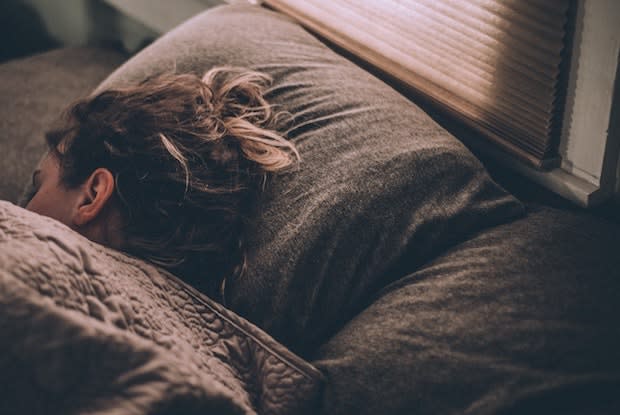Table of Contents
I. Signs and Symptoms of Depression
VI. Gratitude, Meaning, and Meditation
Signs and Symptoms of Depression
Depression can have a significant impact on a person’s day-to-day life. For many with depression, it may seem impossible to get out of the cycle of depressive symptoms. Depression can make you feel like a hostage to your mental health. Symptoms of depression may include:
- Trouble concentrating
- Persistent feelings of sadness or hopelessness
- Insomnia
- Lack of sex drive
- Fatigue
- Overeating or appetite loss
- Loss of interest in pleasurable activities
Through a careful examination of your symptoms and medical history, your doctor will determine if you are experiencing depression. Depending on the cause of your depression, your doctor will likely prescribe medications like antidepressants. Cymbalta (duloxetine) and Lexapro (escitalopram) are commonly prescribed medications that work by balancing chemicals in the brain to regulate mood. Antidepressants and various therapy techniques can work in tandem to treat depression, but there are several things a person can do at home to improve their depression. Read on to learn more about natural treatments for depression. [1]
Many psychiatrists find that creating routines can significantly benefit those with depression. If you have depression, you may find it hard to gather motivation for the simplest activities. Days begin to melt into each other. This can result in isolation, which may increase the severity of depressive symptoms. If you are in the process of treatment, creating a detailed routine may help you stay on the right track to recovery. At the beginning of your treatment, focus on creating a loose routine. It is essential to make sure you don’t backslide into your old, depressive symptoms. If you are worried about keeping up your routine, you can start small. You can make a schedule just on the weekends and then extend it to Monday or Tuesday when you feel comfortable with your new routine. Along with a routine, you may want to set small goals. Small goals, like cooking a meal or taking your dog for a walk, can make you feel accomplished. If you feel like you are reaching these milestones, you can make more challenging goals progressively. [1] Depression and sleep are often interconnected. A lack of sleep can cause mood problems and vice versa. This can be a tough cycle to break, but good sleep patterns can greatly improve your mood and depressive symptoms. If you do not receive 7-9 hours of sleep as an adult, then your motivation, energy level, and emotions can be significantly affected. You may not notice that sleep contributes to your depression, but alterations in your sleep can slowly chip away at your mental health. Researchers have found that those with insomnia have greater depression and anxiety than those who sleep normally. Insomniacs are ten times more likely to have depression and 17 times more likely to have an anxiety disorder. [2] Disrupted sleep can lead to emotional changes, anxiety, depression, and other mental health disorders. If you feel like you are not receiving enough sleep, talk to your doctor about methods to improve your sleep. Your doctor may also recommend testing to find the direct cause of your sleep problems. [2] Getting control of your life can seem almost impossible if you feel lost in your depression symptoms. Once you begin to seek treatment, your diet and exercise routine can help you maintain your symptoms. You may not be in control of your brain chemistry, but you are in control of what you put in your body and how you treat it. Exercising regularly and maintaining a healthy diet can have a drastic effect on the brain. When you exercise, your brain releases endorphins, which can enhance your sense of well-being. Exercising can take your mind off of any nagging worries. It may be difficult to gather the motivation to go for a run or walk, but you will likely feel better once you are done. Exercise can also lead to more social interaction, especially if you frequent gyms or exercise classes. Exercise may also become a healthy coping mechanism. [3] Getting outside is beneficial to everyone, but it can significantly improve the outlook of someone with depression. A busy and stressful lifestyle can make you forget to get outside, but even a few minutes outside can make a difference. People receive vitamin D from sunshine, and this vitamin is essential in a healthy body. Around one in five people have low vitamin D levels, which can lead to a drop in mood. If you have depression, you may not want to get out in the sunshine, but it is vital to expose your skin to some vitamin D. You can kill two birds with one stone, get a walk in, and receive some exercise and some fresh air. [4] Motivation can be hard to come by with depression, so finding meaning in your life is essential. If depressive symptoms have led you to believe you are living without meaning, then giving some of your time to others can help clear your perspective. Being of service to others can significantly impact the way you examine your life and boost your mood. When you feel up to the task, it can be incredibly helpful to your depression journey to volunteer at soup kitchens or grade schools. Regardless of your goals, it is essential to make goals that are manageable, realistic for you, measurable, and something you can control. Servicing others can help you stay in the present and practice mindfulness. [5] Beginning practices like meditation can also help you find perspective. Meditation can help train the brain to achieve focus and help combat negative thinking and emotions. Studies show that meditation can change certain parts of the brain linked to depression. Meditation can help quiet the amygdala or “fear center” in the brain, responsible for creating cortisol (the stress hormone). Meditation has also been shown to protect and help in the growth of the hippocampus, which is the part of the brain responsible for memory. People with depression are likely to have a smaller hippocampus. Those who practice meditation for 30 minutes have been found to increase the gray matter in the hippocampus. [6] The content provided in this article is based on thorough research and in some cases, reviewed by a medical professional. Our goal for the information is to provide helpful, general health informational. It is not intended as a substitute for professional medical advice.
Create a Routine
Get Enough Sleep!

Exercise and Diet
Get Some Fresh Air
Gratitude, Meaning, and Meditation

